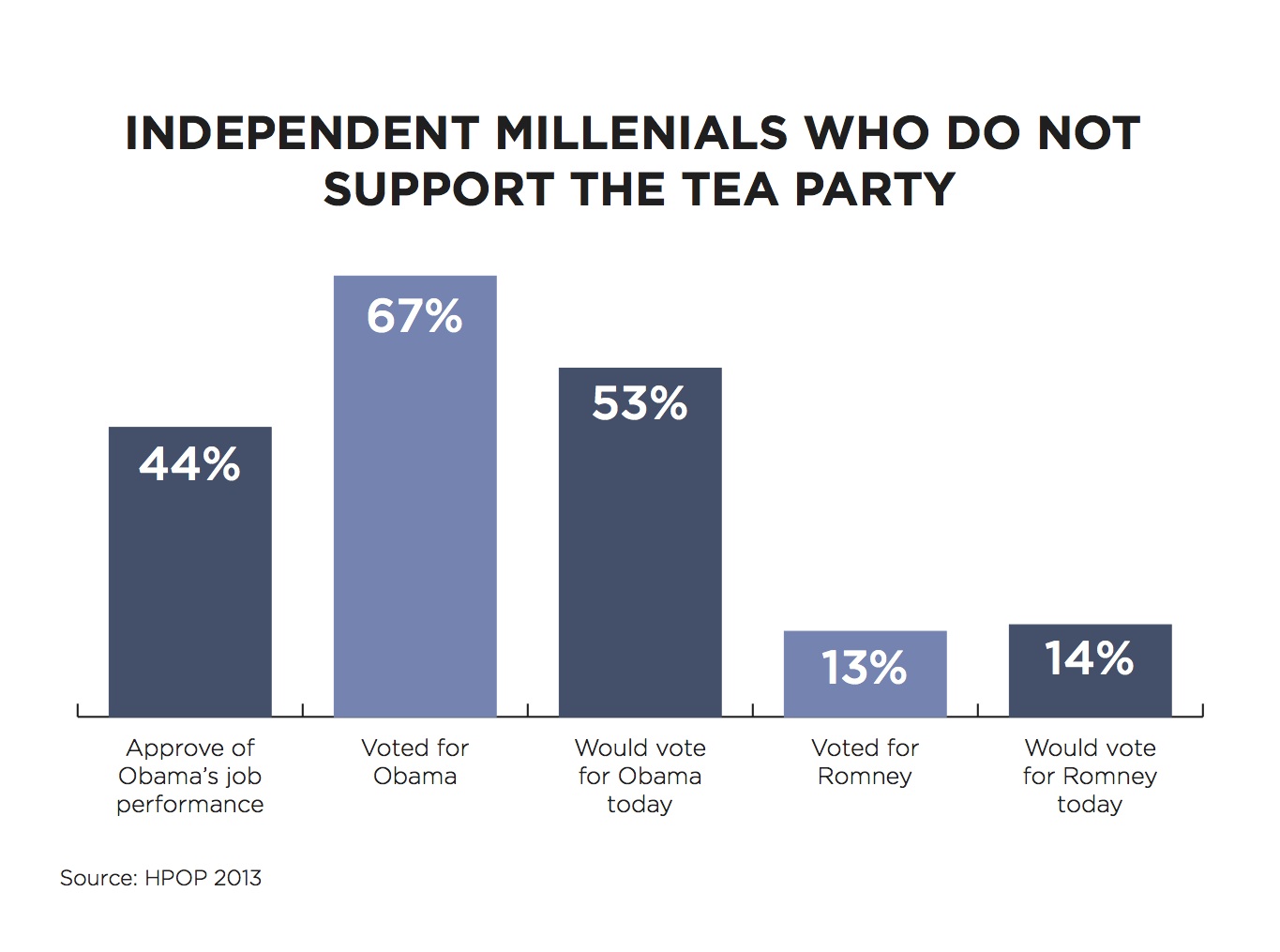According to the Harvard Public Opinion Project’s semi-annual poll of millennials (Americans ages 18-29), millennials across the board have mixed to negative views of the Tea Party. Most significantly, independent millennials look at the Tea Party extremely unfavorably, and this appears to have cost Mitt Romney the vote among that crucial group.
Only 11 percent of millennials consider themselves to be supporters of the Tea Party, with 45 percent saying they do not support the Tea Party, and 41 percent being unsure. Millennial Democrats are predictably anti-Tea Party, but millennial Republicans are extremely divided, with 27 percent supporting the movement, 25 percent not supporting it, and 45 percent unsure. What is even more telling is how independents feel about the Tea Party. A mere 7 percent of independent millennials say they support the movement, with 42 percent not supporting it, and 49 percent feeling unsure.
The fact that three quarters of Republicans have mixed to negative views of the Tea Party certainly does not bode well for the movement’s future. There is already a clear battle for the soul of the Republican Party, and it seems unlikely that this new generation of Republicans will embrace ideological purity at the expense of pragmatic progress.
Even if the anti-Tea Party sentiment among Republicans is not enough for the party to choose to embrace more moderate views, the feelings of independents certainly should be. The 2012 election already seems to have shown that independents who oppose the Tea Party refuse to support more moderate Republicans as well by association.
Further analysis of the complete data of the poll, supplied to the HPR by the Harvard Public Opinion Project, shows that views of the Tea Party were a near-perfect indicator of how independents would vote. Independents who were unsure about the Tea Party were evenly split, with 38% voting for Romney and 37 percent voting for Obama. But independents who did not support the Tea Party overwhelmingly favored Obama, 67 percent to 13 percent.
A deeper analysis of these numbers shows an even more explicit indictment of the Tea Party. An extremely significant 21 percent of millennials who voted in 2012 are independents who say they do not support the Tea Party. Their 67 percent voting rate for Obama is not simply a result of left-leaning millennials who call themselves independents; these voters have a generally negative view of Obama, with 44 percent approving of his job performance and 54 percent disapproving. In contrast, 83 percent of millennial Democrats who do not support the Tea Party approve of Obama’s job performance, and 95 percent of them voted for Obama.
But even if given the option of voting again today, independent millennials still refuse to support Mitt Romney. Today, 53 percent of independent millennials who do not support the Tea Party say they would vote for Obama, but only 14 percent say they would vote for Romney, with 27 percent saying they would vote for someone else. This is a 14 percent drop for Obama, but these voters are still steadfastly unwilling to support Mitt Romney, and 9 percent of them disapprove of Obama, but are willing to vote for him anyway.
Overall, the message of this poll is clear: There is a massive group of young, independent voters who are dissatisfied with the Obama administration. But they also do not support the Tea Party, and most of them are not willing to support Mitt Romney either, seemingly finding him guilty by association.
It is this group of independents that swung millennial independents for Obama, even though Mitt Romney was far from a Tea Party candidate. Given the large number of millennial independents and the fact that they will become more and more influential with each election, the data makes one thing very clear. If the Republican Party wishes to remain relevant in presidential elections, then the dominant message of the party must be one of moderation, not Tea Party rigidity.
